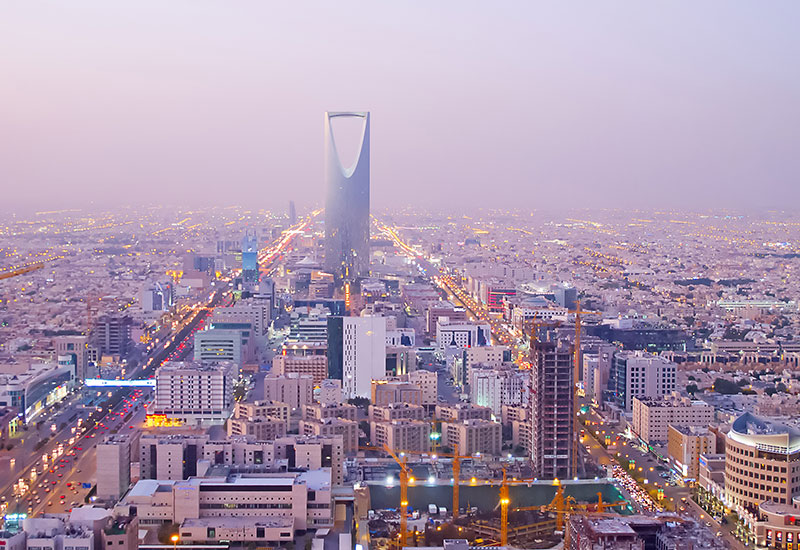Miccolis explains: “With the increase in Saudisation, there is much more focus on continuous training and motivating staff to become loyal employees that we can develop and grow through the business for the longer term. With more competitors coming into the market, it remains a challenge to have longevity with staff.”
IHG’s Blanc echoes Miccolis’ statement. The group is using its in-house IHG Academy to help with employee training and retention.
Blanc explains: “We are committed to hiring, developing and retaining local talent, and to increase the proportion of the employable workforce. We have a programme called the IHG Academy, which is a pioneering global collaboration between IHG and local education and community providers.”
In addition to recruitment challenges, hotels also have to compete with new entrants in the market, including Airbnb, while catering to changing consumer demand.
Voivenel says: “The pie is shrinking with far too many hotel brands and regional operators. The market is being disrupted by new forms of competition such as Airbnb. Rates are constantly under pressure due to oversupply of rooms, and increasing costs of operations are adversely affecting profitability. Guests’ profiles and preferences are changing too and they are looking for greater value for money along with better quality, greater convenience and unique experiences.
“At the same time new patterns of ownership, finance and management are emerging. Contract terms are swinging in favour of owners who are primarily performance driven and are no longer satisfied with long-term capital appreciation. The bottom line is the yardstick that operators are being judged by.”
According to Colliers, increasing hotel supply will remain a challenge well into 2019, but hotels will see a “gradual uplift” as new demand generators come online.
Colliers head of hotels Christopher Lund says: “Challenging market conditions on the demand side and competition from new supply are the key issues faced currently and over the past number of years by hoteliers in the market. These challenges are expected to remain in 2019, with a gradual uplift expected from an increase in demand generators and facilities such as mega-malls, new leisure attractions, etc. Staffing and attracting talent to choose hospitality as a career in KSA is also a key issue faced by the sector. Over the long term, promotion of hospitality as a career should be a key focus, and will need considerable cross stakeholder support by all those involved in the sector within the Kingdom.”
Despite the challenges, however, hoteliers and consultants remain optimistic that the Kingdom’s diversification strategy will pay off.
Lund notes: “Jeddah is expected to benefit significantly from new visa regulations, especially the Umrah Plus visa, which will allow pilgrims to extend their stay in Saudi Arabia and spend additional time visiting key touristic destinations. The cities in the western area of the country are expected to benefit the most from this initiative.”
Increasing competition and staffing challenges aren’t slowing down expansion plans either, as operators continue introducing new brands in the two markets.
Hilton Worldwide, for instance, will debut the Embassy by Hilton brand with the 250-room Embassy by Hilton Riyadh King Fahd Road in 2019.
The first Nobu Hotel in Saudi Arabia is also expected to open in Riyadh in early 2019, pushed back from its original opening date in 2015.
IHG will also continue expanding its presence in Jeddah and Riyadh. Blanc tells Hotelier: “Saudi Arabia is central to our expansion plans in the Middle East and we have more hotels in the pipeline in Riyadh including three hotel openings in the coming two years and we are also looking at bringing our new brands to the market.”
The country has also hired a new “tourism visionary”, Gerard Inzerillo, to spearhead the development of its new historical and tourism assets. Inzerillo will oversee the restoration of Diriyah and the development of new museums, academic institutions and edutainment facilities, as well as resorts, restaurants, wellness facilities and high-end retail in a 7.1 million m2 development in Riyadh.
The MICE business also remains important. According to Colliers, MICE business in the Kingdom grew by 17% in 2017, with more than 4.5 million attendees at 10,000 business events.
The uptick is also reflected in pipeline figures, which show no signs of slowing. As Lund notes: “In Riyadh, the branded upcoming supply planned for Q4 and 2019, is approximately 5,500 hotel keys; for Jeddah, the figure is estimated to be 2,000 hotel keys.”
Whether the new tourism incentives pay off remains to be seen, but hoteliers are clearly eager to get in on the action.

| Advertisement |





